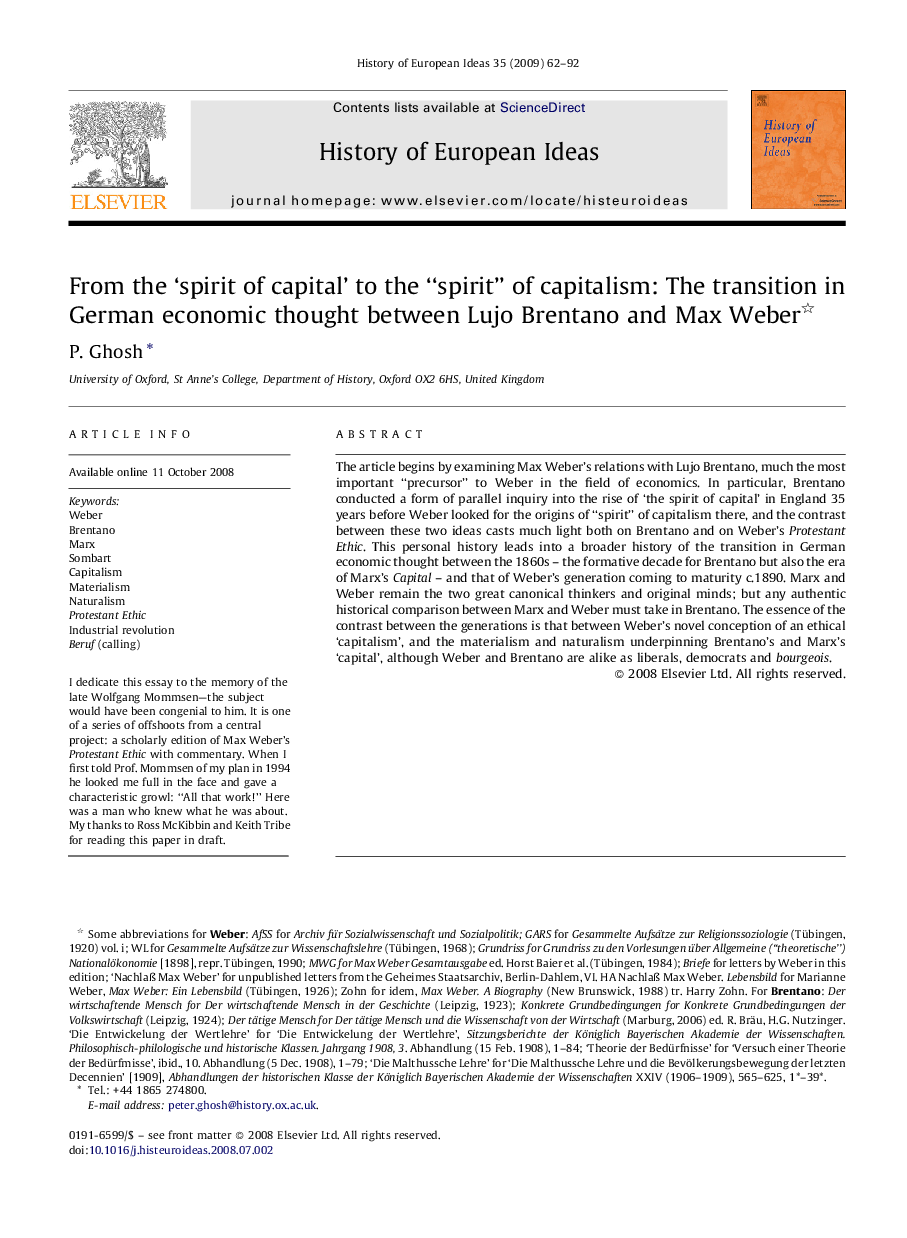| Article ID | Journal | Published Year | Pages | File Type |
|---|---|---|---|---|
| 1159152 | History of European Ideas | 2009 | 31 Pages |
The article begins by examining Max Weber’s relations with Lujo Brentano, much the most important “precursor” to Weber in the field of economics. In particular, Brentano conducted a form of parallel inquiry into the rise of ‘the spirit of capital’ in England 35 years before Weber looked for the origins of “spirit” of capitalism there, and the contrast between these two ideas casts much light both on Brentano and on Weber’s Protestant Ethic. This personal history leads into a broader history of the transition in German economic thought between the 1860s – the formative decade for Brentano but also the era of Marx’s Capital – and that of Weber’s generation coming to maturity c.1890. Marx and Weber remain the two great canonical thinkers and original minds; but any authentic historical comparison between Marx and Weber must take in Brentano. The essence of the contrast between the generations is that between Weber’s novel conception of an ethical ‘capitalism’, and the materialism and naturalism underpinning Brentano’s and Marx’s ‘capital’, although Weber and Brentano are alike as liberals, democrats and bourgeois.
